OP Sequence
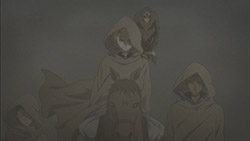 |
 |
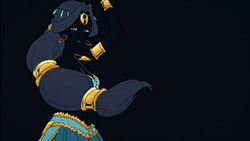 |
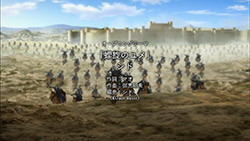 |
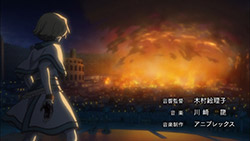 |
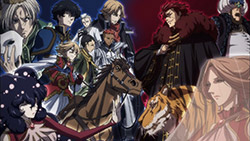 |
OP: 「螺旋のユメ」 (Rasen no Yume) by シド (SID)
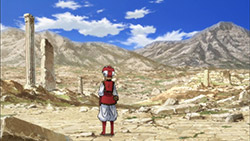 |
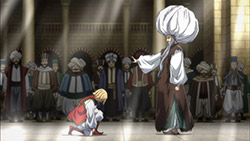 |
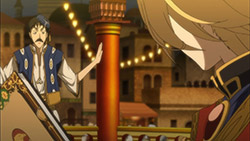 |
 |
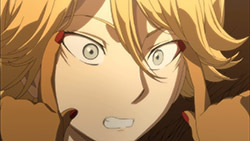 |
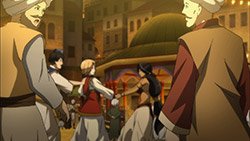 |
 |
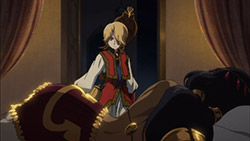 |
 |
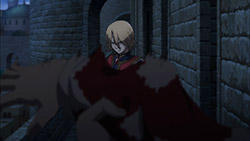 |
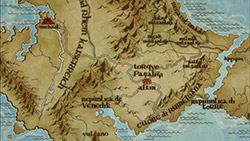 |
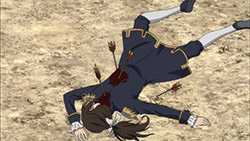 |
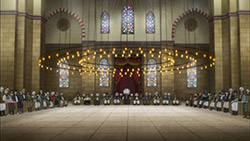 |
 |
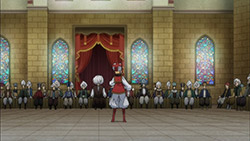 |
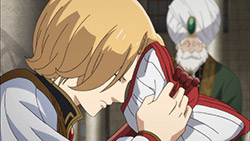 |
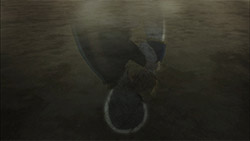 |
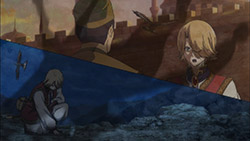 |
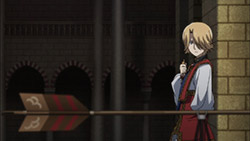 |
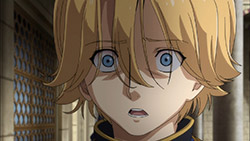 |
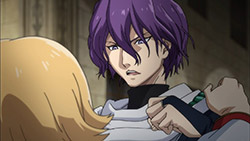 |
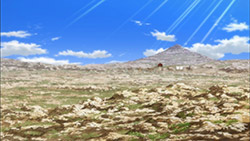 |
 |
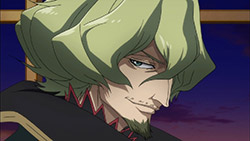 |
 |
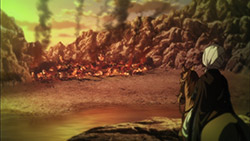 |
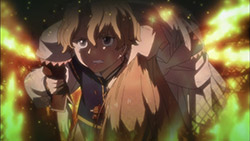 |
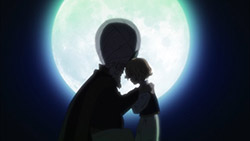 |
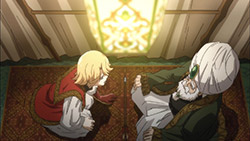 |
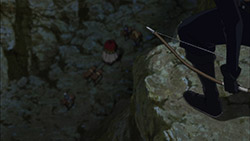 |
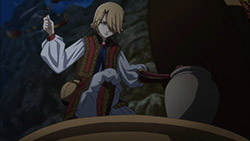 |
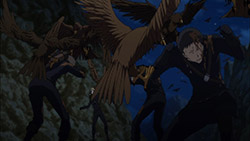 |
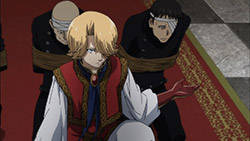 |
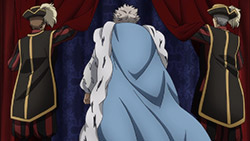 |
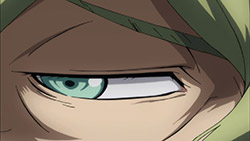 |
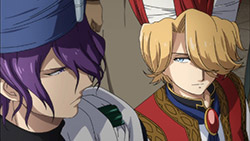 |
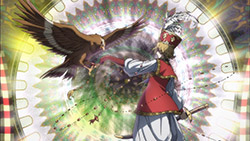 |
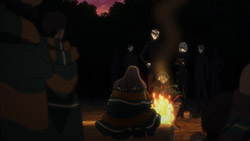 |
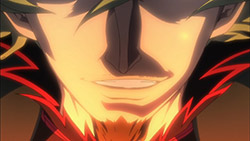 |
「犬鷲の将軍」 (Inuwashi no Shougun)
“The Golden Eagle General”
Turkey’s been popping up in the news headlines more and more recently, and if we work with the old assumption that no news is good news, that may not be a welcome thing. Regardless, it means that Turkey is likely to become an increasingly… ‘interesting’ country as we go, and it behooves us to be more interested in it in turn. The Republic of Turkey, as we know it, is actually a relatively modern invention, with the Ottoman Empire having stuck around until a bit after World War I. How it got the way it is today—how the Hagia Sophia went from a basilica, to a mosque, to a museum—is quite the story, and perhaps that’s enough reason already to watch Shoukoku no Altair, to just get a bit more Turkey in our anime diet, in recognition that there’s more that’s Ottoman than couches and more that’s Turkish than their delights.
Of course, as I noted in the preview, Turkiye is not actually Turkey, and Shoukoku no Altair is not actually history. I think there’s two approaches to history, though. One is the memorisation of details and dates, which may perhaps be useful for the serious scholar, and there Shoukoku no Altair cannot help you. The other, though, is to learn the lessons of history, to understand why things happen and why people through the ages do what they do, and there I think is Shoukoku no Altair‘s historical value for the lay-viewer. We already see examples of wars, of border tensions, of muddy politics, of clashes between cultures and civilisations. Shoukoku no Altair also presents a human angle that a non-fiction history book may not be able to, exploring the tension between the individual ideals and amoral geopolitics. And if nothing else, there’s just heaps of detail in the setting, and perhaps one may look at all the culture presented, think that’s cool, and go off to read Wikipedia for themselves.
With all that it’s offering, it’s needless to say that Shoukoku no Altair is quite packed. That, however, may not necessarily work to its advantage as an anime adaptation. Although it’s going to be 2-cour, it’s evident that Shoukoku no Altair still has to jam a lot of material into this pilot, often resorting to dumps of exposition by the narrator and introductory screen text. While I seldom approve of overt exposition in anime (knowing that the manga gets away with it much more easily), it’s also hard to avoid sometimes, and I can understand why Shoukoku no Altair does it. Such techniques may be intrusive, but perhaps it’s trying to get it all out of the way as quickly as possible, and once we have all the information we need the ball can get rolling unimpeded. So, something of a wonky pace for the first episode, a bit too eagre to do everything and quickly, but once that’s been ironed out we should be in for a ride. We’ve been a promised a war that engulfs the world, after all.
Bottom line: there’s promise here. Shoukoku no Altair is the quasi-historical epic of the season, and while those often take a while to warm up, when they do they can provide the kind of grand drama that few other anime can replicate. There’s just not a lot of them, and even less that involve a fantasy Turkey. I’m crossing my fingers and hoping this one is good, because it certainly can be very.
Full length image: 17.
ED Sequence
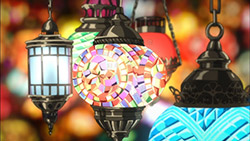 |
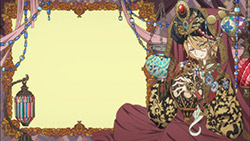 |
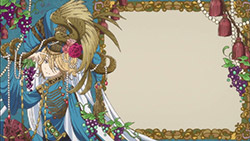 |
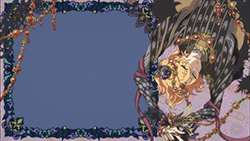 |
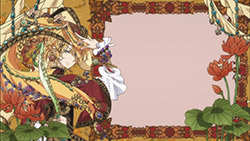 |
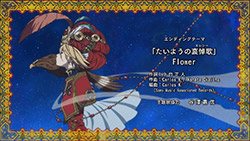 |
ED: 「たいようの哀悼歌」 (Taiyou no Elegy) by Flower
Preview
 |
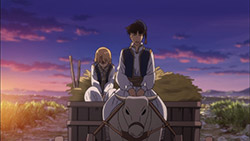 |
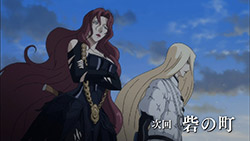 |

It’s a fine first episode with some lovely stills:
https://randomc.net/image/Shoukoku%20no%20Altair/Shoukoku%20no%20Altair%20-%2001%20-%20Large%2037.jpg
a powerful soundtrack and a great ending theme with a beautiful sequence:
https://randomc.net/image/Shoukoku%20no%20Altair/Shoukoku%20no%20Altair%20-%20ED%20-%20Large%2005.jpg
haha first arslan then this, oh or rather the other way around? japan really like middle east setting isn’t it? from magi,arslan and this
Getting Yoshitaka Amano vibes from all the jewelry and colors in the ending.
I’m glad this is going to be a 2-cour (we’re getting lot of these lately which I think is awesome), the setting and plot is clearly going to expand a lot and 24 episodes seems like the minimum to make a significant progression storywise.
Altair’s mangaka has a History degree from Tokyo University, specializing in Turkish history.
So we have anime like Magi (Arabian, and some other cultures), Arslan Senki (Persian), Akatsuki no Yona (Korean), Rokka no Yuusha (Aztec maybe?), and now Altair (Turkish). I’d like to know some other fantasy anime or manga or light novel that has real life cultural counterpart other than medieval Europe.
Looks like Indian and Southeast Asian culture isn’t explored yet.
Seirei no Moribito is an amazingly rich fantasy anime supposedly based on Heian era Japan (source: tvtropes so idk if this is accurate). It’s bit slow, but the attention to detail in the backgrounds, the world building, and even the subtle commentary on historiography makes it all worth it (not to mention the characters). It was adapted from a novel written by a professor of ethnology, so she definitely knew what she was doing with the setting.
The manga Otoyomegatari by Kaoru Mori is set in Central Asia, around mid nineteenth century, not a fantasy setting but rather a historical one. Just the attention to detail to the gorgeous cloths is worth your time reading it.
I’m sure there are tonnes and tonnes set in not-China. Saiyuki, for one.
Usually fantasy anime (and games too) use the generic Middle Age European setting with mixed mythologies. Seeing Middle-East setting and culture in fantasy anime is such a breath of fresh air.
https://randomc.net/image/Shoukoku%20no%20Altair/Shoukoku%20no%20Altair%20-%20ED%20-%20Large%2005.jpg
He looks like fashion model with those exquisite clothes.
Yes, he is the fashion icon of this series. If you have time, you can check out the front cover of each volume of the manga and see Mahmut in different costumes. It’s astonishing the amount of time and detail the manga artist puts in each. Some of the screen shots in the ending are adapted from the manga artwork.
Somehow i get a feeling, this kind of Anime i saw it somewhere, with Arabic prince character and an christian girl and so on… seems like this is their time now
also to be history correctly, its not Turkish, ist ottoman
That would be pedantry, and not even of the very correct sort. The history of Turkey is the history of the Ottoman Empire, and Turkic peoples pre-date even that. In any case, the country in Shoukoku no Altair is literally called Turkiye, so yeah.
I’m already a lock for this. I absolutely loved Arslan Senki, and I’m sure this one will do something great with its plot.
But the thing is, I hope it’ll be at least as good as Arslan Senki (or even better) in terms of plot execution and production values, while still having its own story to tell.
Mahmut for me is like this great mix between Itachi from Naruto and Edward from FMA. Like Itachi, he has seen what war can do and wants to avert it by any means. Like Edward, he is a third option kind of person and wants to go for something that doesn’t involved anyone getting hurt. Now that’s admirable, and it makes for a good introduction for a protagonist. But will it last? Adversity brings development I believe, and it remains to be seen how the adversities of the upcoming war will change him. Looking forward to that.
Another thing Arslan Senki had going for it is that the perspectives of multiple characters served to enrich the overall narrative, given the setting. I hope that gets implemented here in some form, and in a way, this first episode did that, with the perspective of the enemy Vigilio, but perhaps more perspectives can be added in as well. For example, I’d really like to hear what Shara has to say about what is going in the world at least and how that can help Mahmut realize something he may not have known before and therefore will help him do better.
Felt like this episode was better off stretched to three episodes. Considering this is two cour, I hope it was worth it. Probably safe to assume that the next episode will give us a real clue on the shows actual pacing.
A question on the term Pasha, in this shows context, is it a purely military title?
Liking the dancer and elder Pasha already. Hopefully one of them will be around for a while. Can’t have Mahmut fawning over his falcon all the time.
They fit a few chapters into this one, and I agree they could have used more episodes. There were some pacing issues, and also some blocking issues as they transitioned scenes rather quickly.
Was not a fan of this episode. Way too rushed. MC wasn’t likable int he slightest. Supposed to be this great commander (or whatever got him promoted so young), but he just rushes in to that meeting like a babbling child. At least Arlslan’s character (and I loved that show) had the excuse of actually being sheltered so his failings were understandable.
Quite frankly the only reason I didn’t stop watching halfway through was because the remote was too far and I was too lazy to get up. Will not be watching this show this season.
The youngest pasha ever , shouldn’t he be like some sort of a prodigy ? he was dumb , inexperienced and very childish
I frankly prefer this. A prodigy would’ve been too easy and would lack otherwise fruitful adversity. This way, more development potential is at hand. But it remains to be seen how much they can deliver on it.
Oh and, he wasn’t dumb. He thwarted a conspiracy to meant to start a war using his observation.
@yoloalchemist: did we even see how he got to examine the assassination arrow? Looked like he was just walking in the palace and it was suddenly there in front of him for no reason.
@seltzermx
Did we watch the same episode, or are you just beating around the bush just because Mahmut annoyed you? He was brainstorming, not walking in the palace. When the arrow was there in front of him, it suddenly clicked in his mind how strange it looked. Like I said, observation.
He was not smart , he did not say or think of anything new , everything he said the viewer was already thinking , the way he solved it was by having knowledge that wasn’t available to the viewer which doesn’t make him smart but rather ” written to solve it ”
then there is the case of how he handles such situations and no sane person can deny that he is too childish to be in the Diwan ( let’s face it , if what he did brought new things to the table there , then that diwan would not have ruled such a large empire , or even a village )
But I guess it all depends on your definition of intelligent after all
I’ve never felt that Mahmut was stupid, nor did he babble. He raised a good point in the meeting: why are the only options to submit to Balt-Rhein, or to wage war? Why are they not interested in solving problems, just mitigating consequences? Perhaps that’s idealistic, but it’s not stupid.
It’s easy to say “why not choose another path” when you did not offer a path. Had he actually mentioned at the meeting “did we confirm that this attack was not staged” or something to that effect, I would have given him credit, but just walking in there and spouting platitudes without any actual feasible alternatives is pointless and useless.
@seltzermx
Ask yourself this: In a council made up of people of 2 not ideal mindsets, one of peace coupled with inviting weakness and one of power coupled with aggression that can lead into an endless cycle of strife, which of these 2 options do you think is more important:
1. To offer a short term solution of superficial peace to your side that lasts as long as the 2 sides of the conflict deem it necessary before jumping into each others’ throats, or
2. At least try to bring reason into the council’s mind by stating the importance of power in NOT going to war (as Stilts once said in Arslan Senki, the moment you go to war is the moment you lose) and also not losing lives needlessly, and therefore, convince the council to be more open minded about their approaches to such crises?
Mahmut is young. He is inexperienced. He doesn’t yet have the tools and knowledge to convince the Diwan of how valuable his thoughts and opinions are. He only has idealism for now. But you know what? Idealism is something the Diwan direly lacks and therefore, as a council, their union is unsustainable. Yes it is a platitude, so what? It’s what he used it for that matters in the end. And he thought right to try to convince them. Therefore he isn’t stupid. The story is set up so that he is a hard worker instead of a prodigy. Just because that’s not your cup of tea doesn’t mean it’s wrong or bad.
@seltzermx
Mahmut did actually mention whether the Empire’s claim was true
Smart is when you innovate an answer , if Elon Musk thought like the other 7 billion people no body would call him smart
when this young pasha says something so obvious that the entire audience is already thinking of , he is not smart he is just written to solve this situation and the rest were literally written to not do a thing about it
I think it is more impressive to not come up with that conclusion at that point
@Urahara
None of what you said makes Mahmut inherently stupid.
well yes indeed , if we were talking about some commoner
but here we are with this youngest pasha ever being admitted into the Diwan which is a place for shrewd characters and we find out that he is on the ” totally normal ” side of the intelligence spectrum , which is relatively stupid if you consider the qualifications , and above that he is a child in every sense so yeah being not stupid is not the best place to be right now
@Urahara
One can say the same thing about the Diwan itself for not even being open minded enough to have more than 2 mindsets about how to handle this crisis. If there was more than 2, whomever had them just kept silent. Mahmut is the only one with the different mindset that actually tried to avert war and needless casualties. The point of the Diwan is that it’s supposed to be a council that has a lot of different voices on how to handle a situation, and this Diwan just wasn’t, which is admittedly a plot problem in itself. I myself appreciate how Mahmut tried for the different, even if his voice wasn’t heard.
I guess Mahmut just ticked people the wrong way. Without knowing what a Pasha actually is, we can’t really dish his merits. After all, he’s smart enough to pass the written exam and is exceptionally good at falconry. None of those would propel anyone to the rank of Field Marshal. His biggest problem is the same as most young prodigys, immaturity.
Looking at history, even the greatest generals do stupid things. The mediocre ones do a lot of stupid things. Anyone worse would get demoted. Most of those are (mostly) mature people with lots of experience. And don’t forget, most generals of ancient times are more valued by their skills than intelligence. The really smart people tend to end up as advisers.
wait , did the falcon just break that thief’s arm ?
@Urahara: I think it’s an eagle, but regardless, I noticed that as well. Maybe it’s a super/mutant eagle or something.
I assume it’s a golden eagle (y’know, episode title), which has a grip strength of up to 750 psi. That can definitely break your arm and more.
Ep. 01 was OK IMO. Hasn’t sold me yet. Maybe it was rushed, IDK, but I don’t think that’s the issue. The MC leaves something to be desired. Frankly, he’d be fine if they didn’t make him quite so childish at age 17. “OMG! A GIRL!? Icky!” *sigh* Not asking for a sex scene, but yeesh. He’s 17, not 12 (thankful for that at least). I get what the show is going for here, but I think some moderation would be in order (e.g. no need for him to be practically in tears after the meeting. It’s a bit too much IMO).
I also worry about other characters. For example, Zaganos isn’t the most subtle of characters as resident warmonger because reasons (I’m sure explained later). For a political intrigue type of show , my first impression is there’s a lack of subtly.
Then there are some things that struck me as… we’ll go with “odd”. So… the emperor finds out/accepts the story that Louis set up the entire assassination of some other noble to start a war, yet there was no indication of any punishment to come. Maybe in Ep. 02, but you’d think there would be.
Not up on the history of arrow fletching, but is marking arrow fletching with a country’s insignia something from RL? Even if so, seems stupid to me and a complete waste of time, well, except we need to move the plot forward somehow. I will give some credit for the difference in feathers used. That’s something which may affect performance. Even then the resolution was just tied up all too neat including one last complaint…
Ep 01 puts LOTR/Hobbits abuse of eagle ex machina to shame. Is that how our intrepid young pasha will win all his battles? “Fly my pretties! FLY!” Really? O.o Also, does everyone happen to carry scraps of meat 24/7 to feed his pet bird? I LOL’d when the old pasha just so happened to have some on hand to feed the eagle.
I’m in for 1-2 more episodes, but I hope this gets better than what we got in Ep. 01.
For the sake of the argument 1) Tolkien’s eagles are fine in the context of their story and I’m willing to defend them 2) Everything else, I think, is a matter of suspension of disbelief. Either you accept that the character has the ability to set up an elaborate trap by attracting eagles with mutton and his whistle, or you don’t. And similarly so for your other complaints. However, I think the thing to look for in a story, especially a fantasy story, is internal consistency. I don’t think that, so far, Shoukoku no Altair has broken its own rules, and is in fact still establishing them.
@Passerby: Looks like this is another area we’ll have to agree to disagree. (1) I like LOTR a lot, but like many others I do think that deus ex eagle (or is it eagle ex machina?) is pushed too far in the stories. (2) Suspension of disbelief is an issue for any story and each person has their own levels (i.e. some have more than others). Sorry, but there were aspects of the story, as noted, which unduly pushed my suspension of disbelief. I didn’t mention it, but how does the MC know the exact details (time & place) of the assassination attempt? Did I miss it or “he just does”? That may work for you which is fine, to each his/her own, but it’s just one more thing for me. Like I posted, things do get resolved rather easily & conveniently this episode.
Furthermore, I don’t think it helps our young hero as a character to be so eagle reliant. It’s one thing if his pet helps him out during a battle or whatnot. It’s another thing if the eagle(s) does all the heavy lifting.
It is only Episode 1, and lots of story to go. I’m by no means giving a final tally. However, while JMO, this had issues.
I was assuming he didn’t know where the assassination attempt would be, hence the decoy caravan.
Bottom line, I think we can agree, is that it’s a matter of perspective (for example, what’s wrong with an eagle handler relying on eagles? Seems fair). I’m willing to give the benefit of the doubt than you are, like when the eagle broke that bloke’s arm. You assumed it shouldn’t have been able, while I wondered whether it would be able to, gave it the benefit of the doubt, looked it up afterwards, and found out that it totally can. That said, I read a good chunk of the manga to write the preview, so I’ve bought into the world already. Predispositions are hard to shake, but hopefully the next few episodes can win you over.
Ok , so I was so excited for this show but let’s see what we have on our hands
we have the average 17 YO idealist , shy cry baby who lost his family to a previous war
we have the old , wise , self sacrificial man who took him under his wings
we have the young , arrogant dominance seeking council member
we have the Sultan who attends the council but lets other decide such sensitive matters like he is a journalist
we have the war inducing sloppy mastermind of the other country
yep , so far those characters have been pulled out of some very common templates , their goals and desires are so obvious and cliche that they seem plastic , I don’t like characters that don’t seem real to me but then again I’ve seen only one episode so i’m hoping for some real improvement over the next 2
Episode 1 gave the same impression when I read earlier chapter of the manga. It is OKish, but not hooked me tightly. I think around ep 5-6, it will start to get the nitty-gritty of the story and it became awesome.
This felt very rushed.
Didn’t win me over yet.
Europa Universalis game as Ottoman empire, the anime!
This is what a Pasha is:
https://en.wikipedia.org/wiki/Pasha
I’m still amazed that people are apparently incapable of doing a brief Wikipedia search…